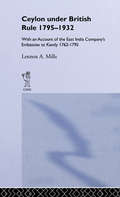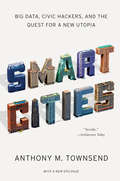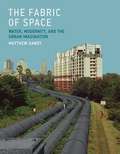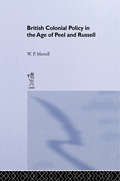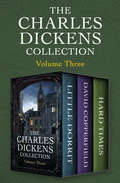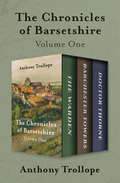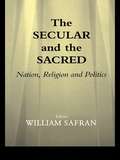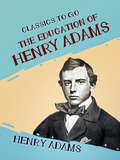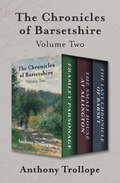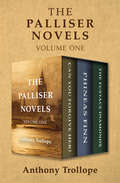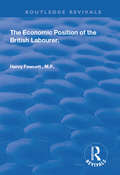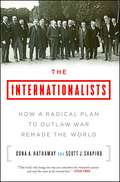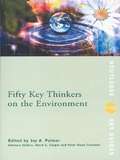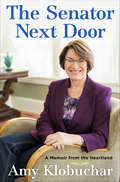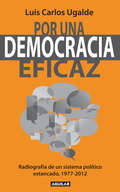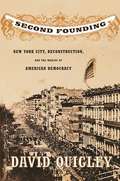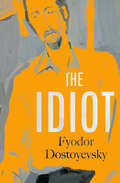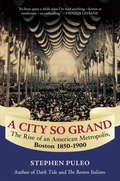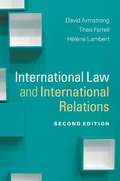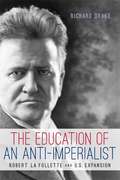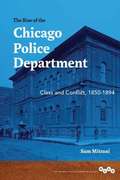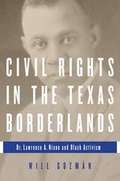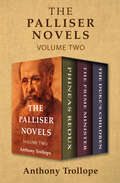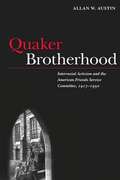- Table View
- List View
Ceylon Under British Rule, 1795-1932: With An Account Of The East India Company's Embassies To Kindly 1762-1795
by Lennox A MillsPublished in 1964, " Ceylon Under British Rule, 1795-1932" is an important contribution to History.
Smart Cities: Big Data, Civic Hackers, and the Quest for a New Utopia
by Anthony M. TownsendAn unflinching look at the aspiring city-builders of our smart, mobile, connected future. We live in a world defined by urbanization and digital ubiquity, where mobile broadband connections outnumber fixed ones, machines dominate a new "internet of things," and more people live in cities than in the countryside. In Smart Cities, urbanist and technology expert Anthony Townsend takes a broad historical look at the forces that have shaped the planning and design of cities and information technologies from the rise of the great industrial cities of the nineteenth century to the present. A century ago, the telegraph and the mechanical tabulator were used to tame cities of millions. Today, cellular networks and cloud computing tie together the complex choreography of mega-regions of tens of millions of people. In response, cities worldwide are deploying technology to address both the timeless challenges of government and the mounting problems posed by human settlements of previously unimaginable size and complexity. In Chicago, GPS sensors on snow plows feed a real-time "plow tracker" map that everyone can access. In Zaragoza, Spain, a "citizen card" can get you on the free city-wide Wi-Fi network, unlock a bike share, check a book out of the library, and pay for your bus ride home. In New York, a guerrilla group of citizen-scientists installed sensors in local sewers to alert you when stormwater runoff overwhelms the system, dumping waste into local waterways. As technology barons, entrepreneurs, mayors, and an emerging vanguard of civic hackers are trying to shape this new frontier, Smart Cities considers the motivations, aspirations, and shortcomings of them all while offering a new civics to guide our efforts as we build the future together, one click at a time.
The Fabric of Space
by Matthew GandyWater lies at the intersection of landscape and infrastructure, crossing between visible and invisible domains of urban space, in the tanks and buckets of the global South and the vast subterranean technological networks of the global North. In this book, Matthew Gandy considers the cultural and material significance of water through the experiences of six cities: Paris, Berlin, Lagos, Mumbai, Los Angeles, and London. Tracing the evolving relationships among modernity, nature, and the urban imagination, from different vantage points and through different periods, Gandy uses water as a lens through which to observe both the ambiguities and the limits of nature as conventionally understood. Gandy begins with the Parisian sewers of the nineteenth century, captured in the photographs of Nadar, and the reconstruction of subterranean Paris. He moves on to Weimar-era Berlin and its protection of public access to lakes for swimming, the culmination of efforts to reconnect the city with nature. He considers the threat of malaria in Lagos, where changing geopolitical circumstances led to large-scale swamp drainage in the 1940s. He shows how the dysfunctional water infrastructure of Mumbai offers a vivid expression of persistent social inequality in a postcolonial city. He explores the incongruous concrete landscapes of the Los Angeles River. Finally, Gandy uses the fictional scenario of a partially submerged London as the starting point for an investigation of the actual hydrological threats facing that city.
British Colonial Policy in the Age of Peel and Russell
by W.P. MorrellFirst published in 1966. Routledge is an imprint of Taylor & Francis, an informa company.
The Charles Dickens Collection Volume Three: Little Dorrit, David Copperfield, and Hard Times
by Charles DickensThree of the brilliant novelist&’s best-known classics in one volume, offering a wide-ranging portrait of nineteenth-century British society. A perfect introduction to the world of Charles Dickens, this volume contains three of his greatest novels. Little Dorrit: An epic tale of two families in Victorian England, one wealthy and the other living in a debtors&’ prison, and their shifting fortunes. David Copperfield: A sprawling masterpiece—and the inspiration for the new film starring Dev Patel—about a boy making his way to manhood in nineteenth-century England.Hard Times: A young girl from the circus world is taken in by a repressed school superintendent and his family in a dreary mill town—and brings unexpected change to their lives.
The Chronicles of Barsetshire Volume One: The Warden, Barchester Towers, and Doctor Thorne (The Chronicles of Barsetshire)
by Anthony TrollopeThree novels of life and death in a rural town in Victorian England by a master of drama and social satire. In the nineteenth century, Anthony Trollope created the fictional world of Barsetshire, the setting for a series of classic novels that addressed love, murder, religion, politics, and the ordinary lives of locals both rich and poor.The Warden: A well-meaning public official finds himself embroiled in a scandal.Barchester Towers: A bishop passes away, leading the town to become caught up in church politics.Doctor Thorne: A young noble is drawn to a woman, but his family is displeased by her lack of fortune and social standing, in this sweeping love story.
The Secular and the Sacred: Nation, Religion and Politics
by William SafranWhat is the place of religion in modern political systems? This volume addresses that question by focusing on ten countries across several geographic areas: Western and East-Central Europe, North America, the Middle East and South Asia. These countries are comparable in the sense that they are committed to constitutional rule, have embraced a more or less secular culture, and have formal guarantees of freedom of religion. Yet in all the cases examined here religion impinges on the political system in the form of legal establishment, semi-legitimation, subvention, and/or selective institutional arrangements and its role is reflected in cultural norms, electoral behaviour and public policies. The relationship between religion and politics comes in many varieties in differing countries, yet all are faced with three major challenges: modernity, democracy and the increasingly multi-ethnic and multi-religious nature of their societies.
The Education of Henry Adams: An Autobiography (Classics To Go)
by Henry AdamsOne of the few masterpieces to issue directly from a raging inferiority complex.
The Chronicles of Barsetshire Volume Two: Framley Parsonage, The Small House at Allington, and The Last Chronicle of Barset (The Chronicles of Barsetshire)
by Anthony TrollopeThree wise, witty novels in the saga following the residents of a rural English town in the Victorian era. In the nineteenth century, Anthony Trollope created the fictional world of Barsetshire, the setting for a series of classic novels that addressed love, murder, religion, politics, and the ordinary lives of locals both rich and poor.Framley Parsonage: A young vicar&’s ambition drives him into a costly bargain in this comedic love story that brilliantly examines the intersection of romance and social class.The Small House at Allington: This witty novel follows the amorous misadventures of a pair of sisters.The Last Chronicle of Barset: A clergyman&’s daughter falls in love with a member of high society, while her father stands accused of a terrible crime.
The Palliser Novels Volume One: Can You Forgive Her?, Phineas Finn, and The Eustace Diamonds (The Palliser Novels)
by Anthony TrollopeThree novels of propriety and politics in Victorian England—the basis for the BBC adaptation.Also known as the Parliamentary Novels, the first three books in Anthony Trollope&’s renowned series follow the lives of an aristocrat, his wife, and the political and social circles in which they move.Can You Forgive Her?: This revealing romp through proper society follows three different women who dare to defy Victorian standards.Phineas Finn: An adventurous Irishman sets out to find his fortune among proper English society—and winds up entering the world of Parliament.The Eustace Diamonds: An ambitious, keenly intelligent woman finds that lying is the easiest way to get through life.
The Economic Position of the British Labourer: 1865 Edition (Routledge Revivals)
by Henry FawcettOriginally published in 1865, the following book is made up of a course of lectures, which the author delivered in the University of Cambridge in the Autumn of 1864. The book includes chapters on the land tenure of England, the causes which regulate wages, and trade unions and strikes.
The Internationalists: How a Radical Plan to Outlaw War Remade the World
by Scott J. Shapiro Oona A. HathawayA bold and provocative history of the men who fought to outlaw war and how an often overlooked treaty signed in 1928 was among the most transformative events in modern history.On a hot summer afternoon in 1928, the leaders of the world assembled in Paris to outlaw war. Within the year, the treaty signed that day, known as the Peace Pact, had been ratified by nearly every state in the world. War, for the first time in history, had become illegal the world over. But the promise of that summer day was fleeting. Within a decade of its signing, each state that had gathered in Paris to renounce war was at war. And in the century that followed, the Peace Pact was dismissed as an act of folly and an unmistakable failure. This book argues that that understanding is inaccurate, and that the Peace Pact ushered in a sustained march toward peace that lasts to this day. The Internationalists tells the story of the Peace Pact by placing it in the long history of international law from the seventeenth century through the present, tracing this rich history through a fascinating and diverse array of lawyers, politicians and intellectuals—Hugo Grotius, Nishi Amane, Salmon Levinson, James Shotwell, Sumner Welles, Carl Schmitt, Hersch Lauterpacht, and Sayyid Qutb. It tells of a centuries-long struggle of ideas over the role of war in a just world order. It details the brutal world of conflict the Peace Pact helped extinguish, and the subsequent era where tariffs and sanctions take the place of tanks and gunships. The Internationalists examines with renewed appreciation an international system that has outlawed wars of aggression and brought unprecedented stability to the world map. Accessible and gripping, this book will change the way we view the history of the twentieth century—and how we must work together to protect the global order the internationalists fought to make possible.
Fifty Key Thinkers on the Environment (Routledge Key Guides)
by Joy A. PalmerFifty Key Thinkers on the Environment is a unique guide to environmental thinking through the ages. Joy A. Palmer, herself an important and prolific author on environmental matters, has assembled a team of thirty-five expert contributors to summarize and analyse the thinking of fifty diverse and stimulating figures – from all over the world and from ancient times to the present day. Among those included are: Philosophers such as Rousseau, Spinoza and Heidegger Activists such as Chico Mendes Literary giants such as Virgil, Goethe and Wordsworth Major religious and spiritual figures such as the Buddha and St Francis of Assisi. Lucid, scholarly and informative, these fifty essays offer a fascinating overview of mankind’s view and understanding of the physical world.
The Senator Next Door: A Memoir from the Heartland (Posthumanities Ser.)
by Amy KlobucharOne of the U.S. Senate's most candid--and funniest--women tells the story of her life and her unshakeable faith in our democracyMinnesota Senator Amy Klobuchar has tackled every obstacle she's encountered--her parents' divorce, her father's alcoholism and recovery, her political campaigns and Washington's gridlock--with honesty, humor and pluck. Now, in The Senator Next Door, she chronicles her remarkable heartland journey, from her immigrant grandparents to her middle-class suburban upbringing to her rise in American politics.After being kicked out of the hospital while her infant daughter was still in intensive care, Klobuchar became the lead advocate for one of the first laws in the country guaranteeing new moms and their babies a 48-hour hospital stay. Later she ran Minnesota's biggest prosecutor's office and in 2006 was the first woman elected to the U.S. Senate from her state. Along the way she fashioned her own political philosophy grounded in her belief that partisan flame-throwing takes no courage at all; what really matters is forging alliances with unlikely partners to solve the nation's problems.Optimistic, plainspoken and often very funny, The Senator Next Door is a story about how the girl next door decided to enter the fray and make a difference. At a moment when America's government often seems incapable of getting anything done, Amy Klobuchar proves that politics is still the art of the possible.
Por una democracia eficaz
by Luis Carlos Ugalde¿Por qué hay desencanto sobre los logros de la democracia mexicana? ¿Por qué prevalece la impunidad y la corrupción a pesar de que hay más transparencia de los poderes públicos? ¿Por qué la alternancia en la presidencia de la República en el año 2000 no condujo a mejores resultados en materia de crecimiento económico y seguridad pública? Con lenguaje claro y rigor analítico, Luis Carlos Ugalde responde y hace un recuento pormenorizado de los tres procesos modernizadores que México ha intentado desde su Independencia: el triunfo liberal del siglo XIX; el desarrollo estabilizador de 1940 a 1970 y el cambio político "aún en marcha" que inicia a fines de los años setentas del siglo XX. Por una democracia eficaz. Radiografía de un sistema político estancado, 1977-2012, explica que estos procesos han sido menores a las expectativas debido a que el sistema político no ha cambiado: persisten problemas sistémicos y ancestrales, como una escasa rendición de cuentas, la impunidad, el clientelismo, la falta de una cultura de la legalidad y de la participación ciudadana, así como un Estado fiscalmente pobre y endeble. Mientras esos problemas no se ataquen, los gobiernos funcionarán con deficiencias pese a su origen democrático. Luis Carlos Ugalde ha combinado una sólida carrera académica en México y los Estados Unidos con experiencia política y de gobierno. Sabe cómo es la realidad y la explica en un marco de análisis que permite entender el pasado y también soñar con un mejor futuro.
Second Founding
by David QuigleyAt the close of the Civil War, Americans found themselves drawn into a new conflict, one in which the basic shape of the nation's government had to be rethought and new rules for the democratic game had to be established. In this superb new study, David Quigley argues that New York City's politics and politicians lay at the heart of Reconstruction's intense, conflicted drama. In ways that we understand all too well today, New York history became national history.The establishment of a postwar interracial democracy required the tearing down and rebuilding of many basic tenets of American government, yet, as Quigley shows in dramatic detail, the white supremacist traditions of the nation's leading city militated against a genuine revision of America's racial order, for New York politicians placed limits on the possibilities of true Reconstruction at every turn. Still, change did occur and a new America did take shape. Ironically, it was in New York City that new languages and practices for public life were developing which left an indelible mark on progressive national politics. Quigley's signal accomplishment is to show that the innovative work of New York's black activists, Tammany Democrats, bourgeois reformers, suffragettes, liberal publicists, and trade unionists resulted in a radical redefinition of reform in urban America.
The Idiot: Webster's Chinese Simplified Thesaurus Edition
by Fyodor Dostoyevsky Eva MartinA novel of innocence and iniquity, love and murder, by the nineteenth-century Russian author of Crime and Punishment and The Brothers Karamazov. After several years in a Swiss sanatorium, twenty-six-year-old Prince Myshkin returns to Russian society to collect his rightful inheritance. But he soon crosses paths with the dark Rogozhin, a rich merchant&’s son whose desire for Nastasya Filippovna will set the three of them on a tragic course. As author Fyodor Dostoevsky traces the effect of Myshkin&’s innocence on the people around him in St. Petersburg, scandal escalates to murder . . . &“I think The Idiot to be a masterpiece—flawed, occasionally tedious or overwrought, like many masterpieces—but a fact of world literature just as important as the densely dramatic Brothers Karamazov or the brilliantly subtle and terrifying Devils. In those two novels, as in the simpler Crime and Punishment, Dostoevsky had plots and political and religious ideas working together. In The Idiot he is straining to grasp a story and a character converting themselves from Gothic to Saint&’s Life on the run. What makes the greatness is double—the character of the prince, and a powerful series of confrontations with death. The true subject of The Idiot is the imminence and immanence of death.&” —A. S. Byatt, The Guardian &“Nothing is outside Dostoevsky&’s province. . . . Out of Shakespeare there is no more exciting reading.&” —Virginia Woolf
A City So Grand
by Stephen PuleoOnce upon a time, "Boston Town" was an insulated New England township. But the community was destined for greatness. Between 1850 and 1900, Boston underwent a stunning metamorphosis to emerge as one of the world's great metropolises-one that achieved national and international prominence in politics, medicine, education, science, social activism, literature, commerce, and transportation. Long before the frustrations of our modern era, in which the notion of accomplishing great things often appears overwhelming or even impossible, Boston distinguished itself in the last half of the nineteenth century by proving it could tackle and overcome the most arduous of challenges and obstacles with repeated-and often resounding-success, becoming a city of vision and daring.In A City So Grand, Stephen Puleo chronicles this remarkable period in Boston's history, in his trademark page-turning style. Our journey begins with the ferocity of the abolitionist movement of the 1850s and ends with the glorious opening of America's first subway station, in 1897. In between we witness the thirty-five-year engineering and city-planning feat of the Back Bay project, Boston's explosion in size through immigration and annexation, the devastating Great Fire of 1872 and subsequent rebuilding of downtown, and Alexander Graham Bell's first telephone utterance in 1876 from his lab at Exeter Place.These lively stories and many more paint an extraordinary portrait of a half century of progress, leadership, and influence that turned a New England town into a world-class city, giving us the Boston we know today.From the Hardcover edition.
International Law and International Relations
by David Armstrong Theo Farrell Hélène LambertIn this fully updated and revised edition, the authors explore the evolution, nature and function of international law in world politics and situate international law in its historical and political context. They propose three interdisciplinary 'lenses' (realist, liberal and constructivist) through which to view the role of international law in world politics and suggest that the concept of an international society provides the overall context within which international legal developments occur. These theoretical perspectives offer different ways of looking at international law in terms of what it is, how it works and how it changes. Topics covered include the use of force, international crimes, human rights, international trade and the environment. The new edition also contains more material on non-western perspectives, international institutions and non-state actors and a new bibliography. Each chapter features discussion questions and guides to further reading.
The Education of an Anti-Imperialist
by Richard DrakeRobert M. La Follette (1855-1925), the Republican senator from Wisconsin, is best known as a key architect of American Progressivism and as a fiery advocate for liberal politics in the domestic sphere. But "Fighting Bob" did not immediately come to a progressive stance on foreign affairs. In "The Education of an Anti-Imperialist," Richard Drake follows La Follette's growth as a critic of America's wars and the policies that led to them. He began his political career with conventional Republican views of the era on foreign policy, avidly supporting the Spanish-American and Philippine-American Wars. La Follette's critique of empire emerged in 1910, during the first year of the Mexican Revolution, as he began to perceive a Washington-Wall Street alliance in the United States' dealings with Mexico. La Follette subsequently became Congress's foremost critic of Woodrow Wilson, fiercely opposing United States involvement in World War I. Denounced in the American press as the most dangerous man in the country, he became hated and vilified by many but beloved and admired by others. La Follette believed that financial imperialism and its necessary instrument, militarism, caused modern wars. He contended they were twin evils that would have ruinous consequences for the United States and its citizens in the twentieth century and beyond.
The Rise of the Chicago Police Department: Class and Conflict, 1850-1894
by Sam MitraniIn this book, Sam Mitrani cogently examines the making of the police department in Chicago, which by the late 1800s had grown into the most violent, turbulent city in America. Chicago was roiling with political and economic conflict, much of it rooted in class tensions, and the city's lawmakers and business elite fostered the growth of a professional municipal police force to protect capitalism, its assets, and their own positions in society. Together with city policymakers, the business elite united behind an ideology of order that would simultaneously justify the police force's existence and dictate its functions. Tracing the Chicago police department's growth through events such as the 1855 Lager Beer riot, the Civil War, the May Day strikes, the 1877 railroad workers strike and riot, and the Haymarket violence in 1886, Mitrani demonstrates that this ideology of order both succeeded and failed in its aims. Recasting late nineteenth-century Chicago in terms of the struggle over order, this insightful history uncovers the modern police department's role in reconciling democracy with industrial capitalism.
Civil Rights in the Texas Borderlands: Dr. Lawrence A. Nixon and Black Activism
by Will GuzmanIn 1907, physician Lawrence A. Nixon fled the racial violence of central Texas to settle in the border town of El Paso. There he became a community and civil rights leader. His victories in two Supreme Court decisions paved the way for dismantling all-white political primaries across the South. Will Guzmán delves into Nixon's lifelong struggle against Jim Crow. Linking Nixon's activism to his independence from the white economy, support from the NAACP, and the man's own indefatigable courage, Guzmán also sheds light on Nixon's presence in symbolic and literal borderlands--as an educated professional in a time when few went to college, as an African American who made waves when most feared violent reprisal, and as someone living on the mythical American frontier as well as an international boundary. A powerful addition to the literature on African Americans in the Southwest, Civil Rights in the Texas Borderlands explores seldom-studied corners of the Black past and the civil rights movement.
The Palliser Novels Volume Two: Phineas Redux, The Prime Minister, and The Duke's Children (The Palliser Novels)
by Anthony TrollopeThree novels of an aristocratic British family and the world of parliamentary politics—the basis for the BBC adaptation.Also known as the Parliamentary Novels, the fourth, fifth, and sixth books in Anthony Trollope&’s series follow the lives of an aristocrat, his wife, and the political and social circles in which they move.Phineas Redux: The ever-ambitious Irish rogue Phineas Finn, now widowed and restless, is pulled back into the game of parliamentary politics.The Prime Minister: With the Whigs and Tories at a standstill in their attempts to form a working government, a compromise is finally reached and Plantagenet Palliser is installed as prime minister—but it will soon bring turmoil, both personal and professional.The Duke&’s Children: Plantagenet Palliser must face new challenges and a changing world if he is to hold his family together in the final installment of the Palliser Novels.
Quaker Brotherhood: Interracial Activism and the American Friends Service Committee, 1917-1950
by Allan W. AustinThe Religious Society of Friends and its service organization, the American Friends Service Committee (AFSC) have long been known for their peace and justice activism. The abolitionist work of Friends during the antebellum era has been well documented, and their contemporary anti-war and anti-racism work is familiar to activists around the world. Quaker Brotherhood is the first extensive study of the AFSC's interracial activism in the first half of the twentieth century, filling a major gap in scholarship on the Quakers' race relations work from the AFSC's founding in 1917 to the beginnings of the civil rights movement in the early 1950s. Allan W. Austin tracks the evolution of key AFSC projects such as the Interracial Section and the American Interracial Peace Committee, which demonstrate the tentativeness of the Friends' activism in the 1920s, as well as efforts in the 1930s to make scholarly ideas and activist work more theologically relevant for Friends. Documenting the AFSC's efforts to help European and Japanese American refugees during World War II, Austin shows that by 1950, Quakers in the AFSC had honed a distinctly Friendly approach to interracial relations that combined scholarly understandings of race with their religious views. In tracing the transformation of one of the most influential social activist groups in the United States over the first half of the twentieth century, Quaker Brotherhood presents Friends in a thoughtful, thorough, and even-handed manner. Austin portrays the history of the AFSC and race--highlighting the organization's boldness in some aspects and its timidity in others--as an ongoing struggle that provides a foundation for understanding how shared agency might function in an imperfect and often racist world. Highlighting the complicated and sometimes controversial connections between Quakers and race during this era, Austin uncovers important aspects of the history of Friends, pacifism, feminism, American religion, immigration, ethnicity, and the early roots of multiculturalism.
